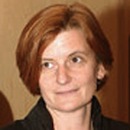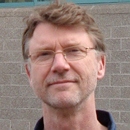Academic Editors
The following people constitute the Editorial Board of Academic Editors for PeerJ. These active academics are the Editors who seek peer reviewers, evaluate their responses, and make editorial decisions on each submission to the journal. Learn more about becoming an Editor.

Jonathan C Thomas
I am currently a Senior Lecturer in Microbial Genomics at Nottingham Trent University and one of the curators of the S. epidermidis MLST database.

Cristiane C Thompson
Professor of Genetics of the Institute of Biology of the Federal University of Rio de Janeiro (UFRJ). Our research group focuses mainly on marine microbiology.

Julie D. Thompson
Until 2013, Senior research scientist at the Institute of Genetics and Molecular and Cellular Biology and University of Strasbourg, France. Currently, senior research scientist in Integrative Bioinformatics and Genomics at the ICube laboratory and University of Strasbourg, France.

Steven John Thompson
Former faculty at Johns Hopkins University, Dartmouth College, UC Davis. I have been teaching college students for over 25 years. My research expertise is in Internet phenomena: access, addiction, agency, control, dependency, governance, and policy; and engineering ethics in Science, Technology, and Society (STS) merging the Internet with physical bodies. I am the Editor for Machine Law, Ethics and Morality in the Age of Artificial Intelligence (2021); Androids, Cyborgs, and Robots in Contemporary Culture and Society (2017); and, Global Issues and Ethical Considerations in Human Enhancement Technologies (2014).

Fabiano Thompson
Oceanographer and Professor of Marine Biology of the Institute of Biology and SAGE-COPPE of the Federal University of Rio de Janeiro (UFRJ). Our research group focuses mainly on marine microbiology.

Dominic Thorrington
Dr. Dominic Thorrington is Scientific Project Manager at the French healthcare regulator, La Haute Autorité de Santé.
He is an experienced health economist, infectious disease epidemiologist and mathematician, specialising in the modelling of infectious disease outbreaks and evaluating the cost-effectiveness of vaccination strategies.

Mark Tibbett
Professor of Soil Ecology at the University of Reading. Co-Editor-in-Chief of Soil Research.
Research interests include mycorrhiza, plant-soil interactions, terrestrial biogeochemistry and restoration ecology.

Vladimir I. Titorenko
Professor and Concordia University Research Fellow, Biology Department, Concordia University, Montreal, Quebec, Canada.
Research interests include molecular and cellular mechanisms of aging and age-related disorders.

David Tollervey
Director of the Wellcome Trust Centre for Cell Biology, Professor of RNA Biology and Wellcome Trust Principal Research Fellow. Fellow of the Royal Society, Member of EMBO and Fellow of the Royal Society of Edinburgh. Former President of the RNA Society.

Mahendra Pratap Singh Tomar
Dr. Mahendra Tomar is a Veterinary Professor and Anatomist at the N.T.R. College of Veterinary Science, Gannavaram.
Dr. Tomar works in the field of comparative anatomy of animals, particularly mammals, and his research focuses on macroscopic and microscopic anatomy including the developmental biology of animals. More specifically, his fields of expertise are histology, histochemistry, enzyme histochemistry and forensic animal anatomy.

Luca Tommasi
I am an experimental psychologist and professor of psychobiology and cognitive neuroscience at the University of Chieti, Italy. My research is currently focused on human perception, emotion and memory, with a slant on hemispheric and behavioural lateralization, and a comparative perspective. I earned a PhD in Psychology from University of Padua, and was a postdoctoral fellow at CNRS in Marseille, and at the Konrad Lorenz Institute for Evolution and Cognition Research in Altenberg.

Niels M. 'Hans' Tommerup
Professor of Medical Genetics and director of Wilhelm Johannsen Centre for Functional Genome Research, Department of Cellular and Molecular Medicine, University of Copenhagen. Former president of the Danish Society of Reproduction and Fetal Development. Former Chair of the International Standing Committee on Human Cytogenetic Nomenclature (ISCN).

